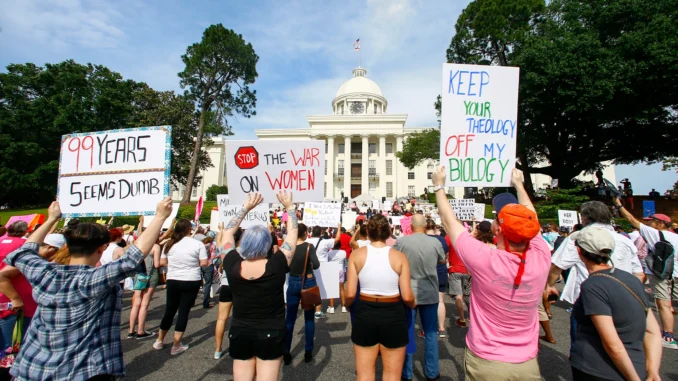
Maeve Bidonde, Staff Writer
In Alabama, The State Supreme Court has ruled that embryos should be considered children. Lawmakers are now racing to protect IVF so couples who struggle with infertility or just to conceive can still have a chance at having a family.
IVF, otherwise known as Invitro Fertilization, is a procedure that involves the conception of an embryo from both the male and female. The first part is harvesting eggs from the female and harvesting sperm from the male. Before this, the female is required to be on medication to facilitate the growth of eggs. The female then undergoes a procedure called egg retrieval, where they take her eggs. They see which ones mature and are prime for fertilization. Once this fertilized egg matures into what is called an embryo, it’s transferred into the female’s womb.
IVF can also save lives at the same time. Parents who have children in need of a transplant or surgery might not be a match to donate and can use IVF to create a match.
Alabama is not the only state to have made this decision. Florida has sidelined a bill that would allow for civil suits for wrongful death of a fetus. What led to the ruling was the accidental destruction of embryos earlier this month. According to The New York Times, the ruling created a fear of prosecution for discarding embryos. Families have many reasons for choosing to discard embryos, such as the embryo having a debilitating genetic condition or mutation, which would make the life of that embryo hard.
In 2020, a patient at the Mobile Alabama Hospital was able to get through an unsecured door to the cryo nursery where the embryos were frozen. The patient reached in, grabbed tubes of embryos, and dropped the tubes where it shattered. A family sued for wrongful death but was denied by a small court. This is the latest stunt in the law attempting to control reproductive health and complicating the matter of science.
A lot of women feel that lawmakers, especially the men, have no right to create laws and restrict what they can do with their bodies. In the past, the government that overturned Roe v. Wade, and has taxed feminine products after labeling them essential which critics see as discriminatory towards women. What could this mean for women in the future? Is this for good or worse?
Leave a Reply